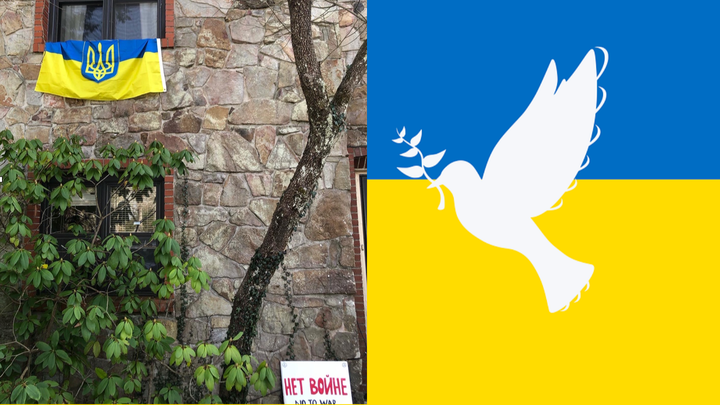
Aid for Ukrainian Refugees; Sewanee Community
POST-POLAND
We are back! And the trip was a great success. Thank you again to all of you who donated and helped to make this possible. We worked hard everyday and were able to help a lot of people.
We ended up spending much more of our time at the train station than I had originally anticipated. The war is not going well for Russia and the battle lines have mostly stagnated. This means that there are far less people leaving Ukraine then their were. Furthermore many people actually feel safe to return to their homes. Therefore we spent much of our time helping people to return to their homes in Ukriane as well as helping them find hosts and visas abroad.
Below we will all post a personal story or two which affected us strongly during the trip. Unfortunately, we took very few pictures of the refugees. There is a fear that the Russian Gov could try to use personal information against refugees and identify them using facial recognition. Therefore most of our photos we will post here are of ourselves.
Personal Stories
I bought a very cute stuffed elephant at the post office while we were sending our supplies. I knew it would make some young Ukrainian child very happy but I didn't give it away until my last day in Przemysl. Everyone had already left the day before and I was one saying goodbye to some other volunteers I had come to know over the course of the week when a woman and her son came up asking for help. The son looked like he was maybe 8 years old but was probably older. I immediately knew that he had down syndrome. People with down syndrome often have distinct physical features; flattened faces, almond shaped upward slanting eyes, small ears, all features they share with my little brother Nolan. I gave the little stuffed elephant to the boy who looked like my little brother and he was so happy. His face lit with joy. He jumped around a little bit and gave me a hug. I helped them to their train and sent them off. Seeing that little boy who looked so much like my brother really made me feel like this could have happened to my family as well, and if it did I would be glad if someone came to help my mother and brother. It was a small moment but it was one that really made the whole trip feel worthwhile to me.
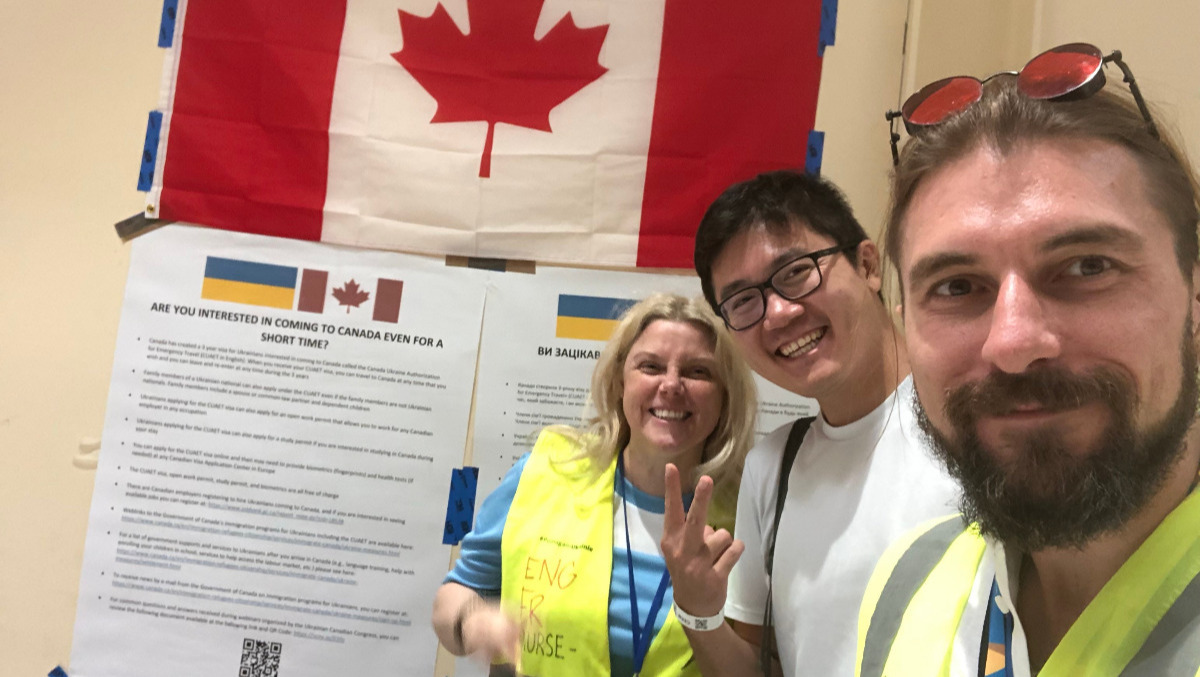
We helped many people daily: we helped them understand what their options were, find housing, transportation, fill in visa applications, find food, and carry their luggage. One night a moment of desperation for me turned out well. We were working at the train station. There were a bunch of exhausted people who needed a place to sleep. We had worked at the “Tesco” refugee center for a couple of days and knew that the center had room and they were eager to receive and help people. It was continually confusing since there kept being rumors that the center was closing. There were many kind and cheerful drivers during the day (Here’s a picture of a sweet British man, David, next to our volunteer, Rin, who came and at his own expense was ferrying people all day long every day. He refused to let me help pay for a traffic ticket he’d gotten, but did allow me to buy him a beer after work.)
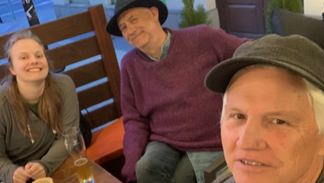
So the following happened at around 11:00 at night. Several families had just arrived from Ukraine and needed a place to sleep. They had children. to get to the center to a clean bed. Some would return to the train station the following morning (more transportation was available in the morning), others would at the center apply for refugee status to go on to another European country. But at that hour, there were not any/many buses or little vans making runs to the center. I finally flagged down one of the buses and a driver got out who said they were not accepting more refugees at the center. I had just checked with one of the directors at the center and knew they were accepting. I told him this- and he said, kind of grudgingly, that he would indeed take a van load of people to the center, and then he walked away from his van. I ran around and gathered a van load of people with children, carrying their luggage. They then stood there for half an hour, but the guy was delayed. Finally he came back and said he was not doing the run, and he wouldn’t look at me. I told him he needed to do it since we had on his word gathered families up (I pointed to all the people waiting next to his van). He shook his head and said he was going to help someone else, a disabled lady get to where she needed to go - he pointed to a lady in a wheelchair and that would take an hour. I was exasperated since these exhausted families were waiting - and for a second felt like yelling at him. Instead, I grabbed another young volunteer and said, “try to find them a van to Tesco,” pointing at the families, and I told the squirrelly guy I’d help him. We quickly learned that she would not fit in his van - and he basically just got in his van and drove away, which left me disappointed and dumbfounded. The poor lady who could not walk - her people came - and they did have a small van. We helped take out a seat in the back, and I got several men to help, and we loaded her - in her wheelchair - into that van. The young Ukrainian man with the van, who currently lived in Poland with his adorable family - wife, infant and two year old, all in the van, said she was a friend from their village whose family had died and they had to help her. She was very heavy, maybe 200 lbs and could not use her legs at all, and arms barely. She was scared. There was a center in Przemysl that could take care of her that was 20 minutes away by car. I asked him how he was going to unload her there. He had no idea since it was so late, and there was no one at the center at that hour who could help unload her. I saw the young volunteer I’d spoken earlier to had gotten a van for the families, ( a sweet older Russian man whom I later got to know, with a ponytail and a van, who had abandoned Russia forever and come to help refugees) So, when I saw that those people were taken care of, I got in the van with the young family and said, “let’s go.” When we arrived - there were just a couple of old people running the center at night - and no one to help unload. It was late and dark but I noticed a group of young men walking by in the distance - and hailed them - and in spite of the sketchy situation, a guy hailing them in the middle of the night and asking them to come around to a dark alley and help, they eagerly came and helped unload the woman - and carry her in her wheelchair up the entrance flight of stairs to an elevator. Once upstairs there was indeed a nice facility with handicap access - that received her. After we checked them in - the young man took me back to the station. I offered to get there on my own, but he insisted. I learned that they had a 3 hour drive back home that night and gave them money from our fund to get a room. Here is a picture of the mother and baby. The many babies that we saw among the refugees all looked about like this: beautiful with huge eyes that look right into your soul. The father of this family told me that seeing people come from all around the world to help had restored his faith in humanity. I may have cried a little.
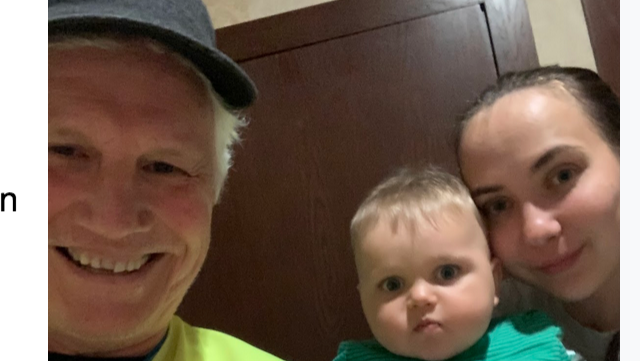
I had a few stories I wanted to share. It was my first day at the Tesco refugee center, and I walked past an elderly man listening to music I immediately identified as Armenian. I started doing a little dance, and he gave me a concerned, confused look. I asked him in Armenian if he was Armenian, and he replied in Russian confused likely unsure what language I spoke to him in, but he confirmed that yes he was. We then spoke for just a few seconds before he stood up and gave me a kiss on the cheek once he confirmedI I was also Armenian. This elderly Armenian man from Dnipro was so touched that a young Armenian man from America would go over and help, and he told me he felt much safer knowing that I could help him. We spoke for an hour about different European countries he can move to and I ensured he was set up to speak with a visa representative the next day.
Another group of people I encountered were Roma people from the oblast where I served in the Peace Corps who were returning to Ukraine. They were not from my city, but knew the diversity NGO I worked at and the local Roma “king” who I worked with personally while in Ukraine. I knew they were in a time of need, trying to bring a large family with young infants to the border, and I spent time speaking with them and getting to know them briefly, and I built trust with them after we all realized that we lived in the same part of Ukraine. I was able to get them up to the border, alongside some other mothers and children, helping ease their stress and let them not wait in line for a few hours.
Mid-way into our stay, the volunteers at the train station had heard that one of the departures was chock full, heading out to Krakow at 4 in the morning. Unfortunately, all of the translators had been working since early morning, so to my knowledge, there would have been only one other Russian speaker at the station at that terrible hour with a total of 5 volunteers. In a half baked moment of decision making at around 9pm, I thought that I could stick around, help with luggage and directions until about 5am to help with the rush. I’d already been working for around 9 hours, but there was coffee to spare, so I settled in. I ended up coordinating with a group of German scouts that had taken up the night shift- if they found somebody that needed help in the Russian language they’d send them to me. The work was much more difficult in the evening, my brain was already fried from the earlier translation and as the exhaustion began to settle in, taking the luggage up only became more difficult. It became apparent helping one woman, Lyudmila, as well as her mother and daughter; I’d begun to lose my translation skills helping them prepare for that same 4am train. I struggled as I helped get the young daughter warm milk, dragging their luggage along all while helping them retrieve their ticket. Eventually, they got a chance for rest once all was settled, staying in the women’s area and getting in a few hours of sleep before their soon-to-arrive train, and I went back to work.
The next few hours, if I’m completely honest, are hazy; all I can really say
is that I spent the time running around with various bags while slurring my
Russian under the influence of sleep. It’s not until that 4am train that things
became more clear. I downed two coffees in preparation, and began the process of leading people towards the platform and helping them on the train. At that hour, everyone boarding the train is rubbing sleep from their eyes, people are less focused and need more assistance, especially the elderly and families with children. They were all eager and exhausted and ready to end their journey, many of them were carrying their whole lives in their luggage and just wanted to stop moving, to settle. Helping Lyudmila drove the point home, as this woman, her mother, and her daughter settled into their cabin, the daughter fell asleep, Lyudmila sighed, and her mother cried. They had been moving non-stop for god knows how long, just trying to stop off in someplace safe. They hugged me, shook my hand, thanked me, and told me to get some rest. On leaving, ready to get back to my bed in our room downtown, I realized how lucky I was to have a bed to get back to, that I didn’t have to be constantly on the move.
War came very suddenly into my home and made the separation from my family feel a thousand times longer and lonelier. On campus we did as much as it was possible: arranged fundraisers, spread awareness, organized educational and spiritual events. But as the days went by, I observed the storm of support and care die down until the Ukrainian flag on my dorm window was all that was left.
War slapped me in the face again on the train ride to Ptzemysl. A woman from Mariupol was sharing her story, sobbing. She was not the only one traveling: most people on the train spoke my language. Mothers with little kids, older women with bags and suitcases all were heading to and from the border. Even helping them carry a suitcase felt like I could ease their struggles a little bit.
Once we arrived at the Humanitarian Aid center, TESCO, I wrote down the languages I know on my vest and got immediately pulled over to a German desk, where a mom with her daughter was trying to get assistance. And so it started. During the first two days that I was at TESCO, there was not a minute where I wouldn’t have any work. People coming from the east and the south, from Kharkiv, Mariupol and other towns and villages all needed food, shelter, and a friendly face to reassure them that they are safe and will be taken care of as best as we can. An old man came up to me at one point asking for directions to where he could get a pillow and a blanket, so I decided to lead the way and the man was very grateful. While we walked, I asked where he was from. “Mariupol. - he said, looking me in the eyes - We escaped. Had a machine gun pressed to my chin. They said I'd look better dead than alive.” I looked at the old man’s wide open eyes, calm and emotionless, and my heart suddenly dropped down. War slapped me in the face again, this time stronger than ever before. Grandpa then thanked me for the help and went on with his day as though nothing had happened. I am filled with inexplicable grief, but also with an even stronger pride and admiration towards my people. The horrors they went through are inconceivable and even though I am Ukrainian, I catch myself thinking that my own struggles are nothing compared to anyone who is physically in Ukraine. The least one can do to understand them is to listen to their stories, to talk to them face to face and you might catch a glimpse of their experiences reflected in their eyes. And the least we can do to help is to share their burden the way our group did in Przemysl.
There is no emotion more filling than the one I got standing in the middle of a Przemysl train station vestibule wearing my yellow vest with spoken languages listed on the back. In barely 5 minutes of time over a dozen people had called for me from every direction, as I was the only volunteer they saw with “Ukrainian” listed on the vest. They came and left, more refugees arrived, around a hundred were packed in a very limited space, all asking for assistance. It hadn’t been even 30 minutes since I came in, so I couldn’t do much but I was picking it up on the go. By the time me and our group had to leave, we had to take the vest off and hide it, so that we wouldn’t be pulled back in. That inexpressible feeling of being needed and being helpful was worth every minute spent on getting to Przemysl from the other side of the world. I am grateful with all my heart for the opportunity to easen the pain at least a bit for all those who have lost so much already and who have no other way other than to keep going, even when they are lost and tired.
Let me paint a picture: a lot of Ukrainian mothers and their children, stuffed in not-so-comfortable quarters, waiting to hop on buses or trains to their next destination, some country outside of Poland where they will figure out the next step of their lives. The work I was assigned to was largely interpretation. I speak Russian and English, which came in handy when more often than not the people working with Ukrainians didn’t speak any Russian at all. Occasionally there would be moments where no more refugees were pouring in, when nobody needed interpretation work done, and in those moments I often found myself helping out with the kids. One of these kids was named Roman. He and a couple other kids were working on building a large ball obstacle course and I walked over to say hi. They were having difficulties with a couple sections of the course, and I joined a few other volunteers in fixing it. I tried speaking Russian to Roman but he didn’t really understand me - so we did our best to communicate with what little Ukrainian I spoke. We fixed the obstacle course and I continued to chat with Roman as best I could. I walked around the center and he followed me, I was pointing at things and asking him what they were in Ukrainian. After a little while I was able to communicate with him in a Frankenstein-mix of Russian and a little Ukrainian, to the point that we could understand one another, for the most part. Eventually another group of refugees piled in and I told him I had to go help. I walked to the immigration tables ready to start interpretation. I translated for a bit and looked behind me- I had acquired a shadow: Roman decided to follow along.We continued like this for the rest of the day. I would walk over to a table to translate and Roman would join me, vividly interested in the unintelligible conversation I mediated. Then, when the refugees stopped filing in, we would walk around and chat, me learning new bits of Ukrainian and him picking up some words in English. Eventually, the day ended and we said goodbye, and I didn’t see him again after that. The experience was a reminder of the desire for normalcy. Despite the surroundings and the horrible circumstances many Ukrainian refugees find themselves in, they seek out a sense of normalcy.
The Back Story
As of April 20, 2022, more than 5 million refugees have left Ukraine while more than 7 million are estimated to have been displaced internally as Russia’s attacks continue. Source for more data.
The members of our group have dedicated our careers to studying the Russian and Ukrainian languages, Eastern European culture and history, and we maintain deep connections to the region today. With cities that some of us have traveled to or lived in being bombed and targeted, the war is continuing to grow even more personal.
We have been in touch with several organizations in the region to learn how we can be of assistance. While there has been a massive influx of volunteers to help refugees resettle, not all volunteers have critically needed language skills. Each of us maintains an advanced level of Russian and English, with some speaking Ukrainian as well. According to our contacts in Poland, translators for these languages specifically are in short supply.
Our Request
First and foremost, our goal in this trip is to donate time and language skills to help MAD Foundation with translating visa applications to the UK for incoming refugees in Przemysl. However, we have been in touch with organizations working with internally displaced people within Ukraine, and we would like to fundraise additional money to help support these causes and the organizations doing the work as much as we possibly can.
Donations of any amount are welcome, though our goal for this project is $15,000.
We are in the process of securing funds for the flights; as the most critical need at this point is Russian, Ukrainian, and English language skills, we will utilize a small portion of the amount towards the remaining cost of the flights. You can see the breakdown of our estimated costs and planned donations below.
Fundraising Breakdown
- Estimated 7-8 flights (securing approx $7k towards this)
- Estimated $500 for rental van, to be used for transportation,
- Minimum of $1000 for our on-the-ground partner in Poland, MAD Foundation, in exchange for logistical support, including housing and food. Operating in locations in Poland, MAD Foundation is assisting with the transportation of people after they’ve crossed the border, the delivery of humanitarian supplies into Ukraine on a small scale, and assistance with refugees’ “next step.”
- Minimum $5000 for our contacts at local organizations who continue to operate on the ground in Ukraine. During our stay, we will be making a trip to Przemyśl where we will connect with our contacts from Ukraine. To avoid unwanted attention and for their safety, we have opted not to include their names nor locations in the country, but please don’t hesitate to reach out if you would like to learn more information. They are a governmental youth organization in a medium-sized Ukrainian city that is actively working to assist displaced children arriving from the most affected regions and their parents who are uncertain about their family’s futures.. They have a team of volunteers working every day to help those in need and are partnering with other organizations throughout the city and oblast/province to disperse aid. They will be able to get the supplies from the Polish border to the city and then distribute the items to those in need.
Below are some of the items most needed:
Needs:
Clothes
Cleaning Supplies
Office and School Supplies (used to help children keep up with their studies)
Tables and Chairs (for handing out aid)
Dreams: Tablets or Chrome Notebooks
Dream need: a car
Minimum $2000 for other organizations
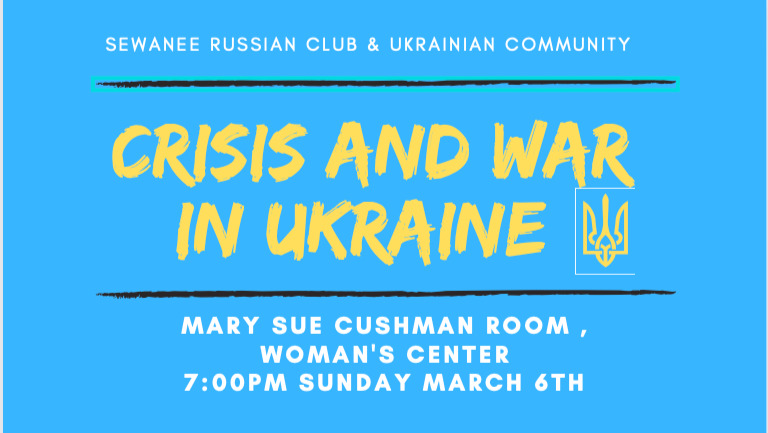
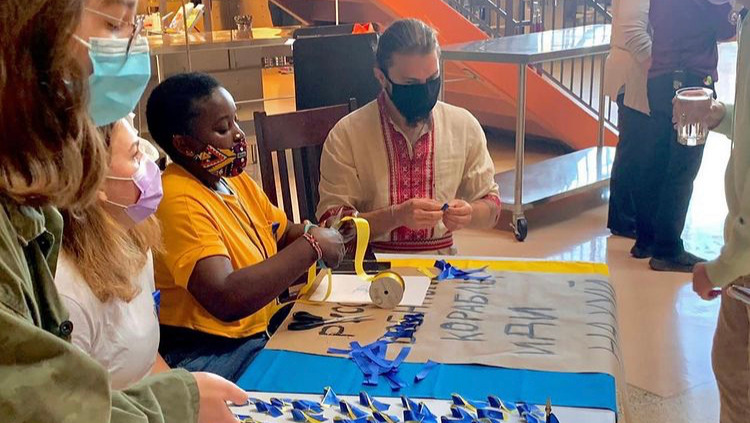
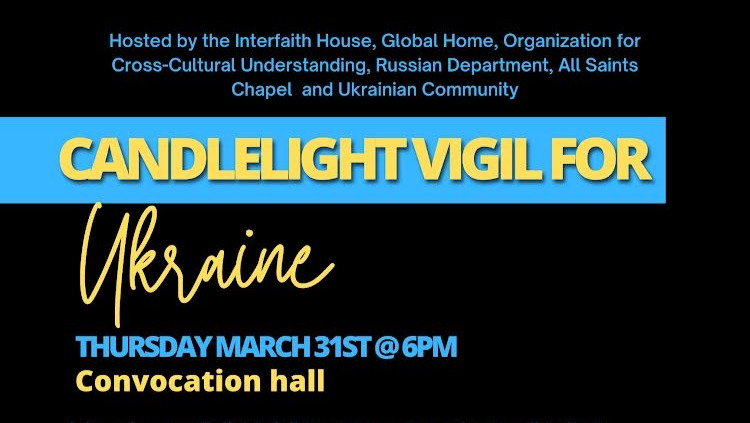
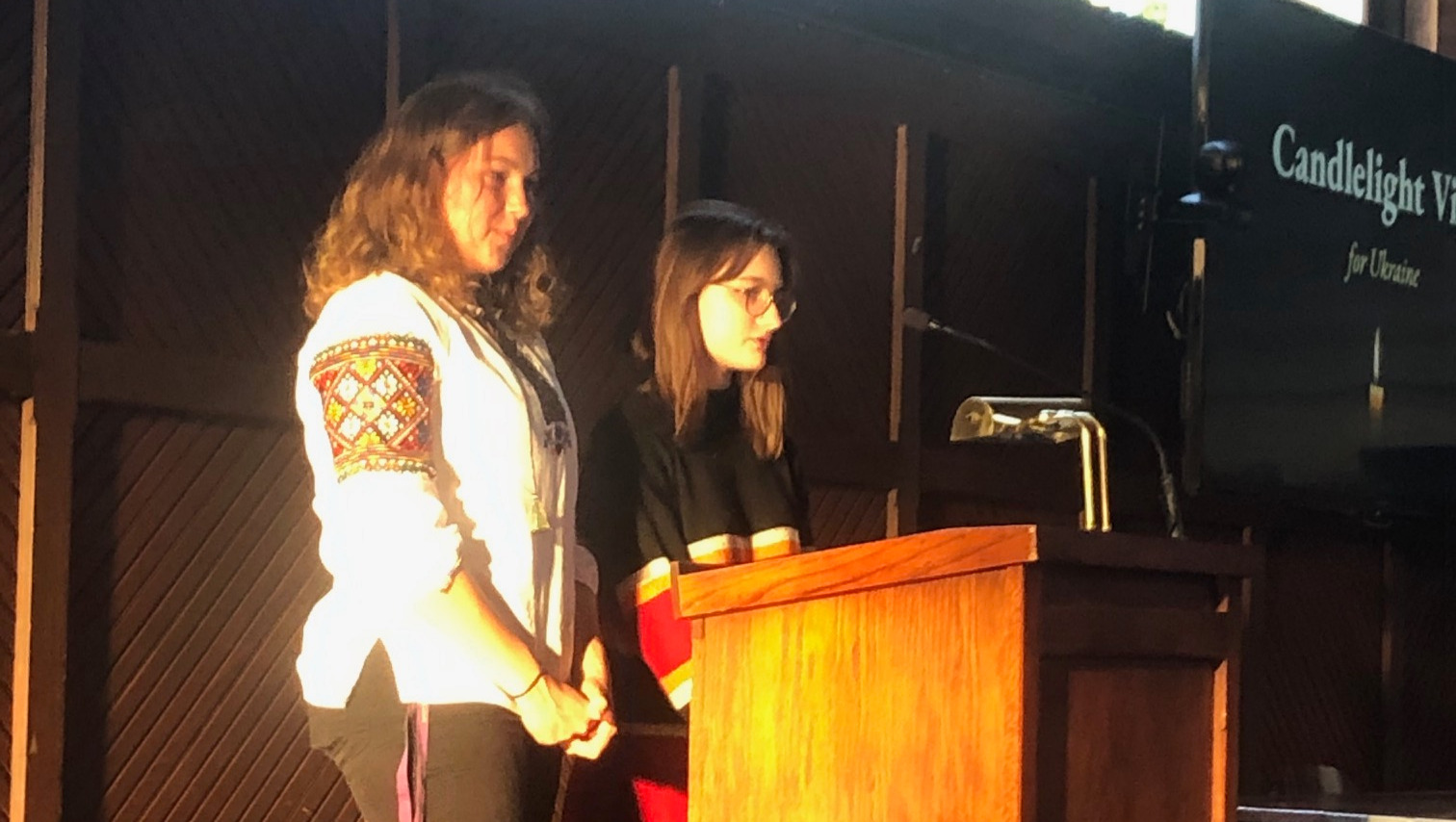
Co-organizers2
Tyson Slava Trotz
Organizer
Sewanee, TN
Kamilla Haidaienko
Co-organizer